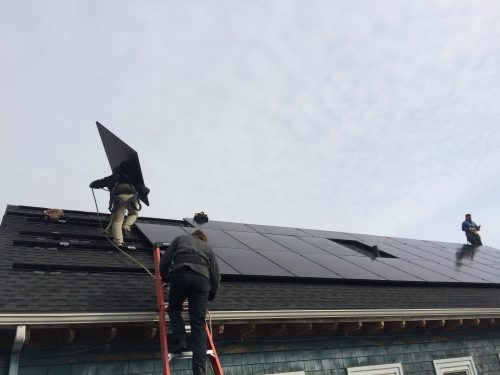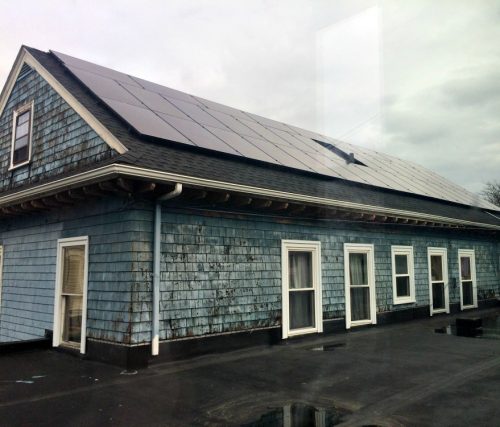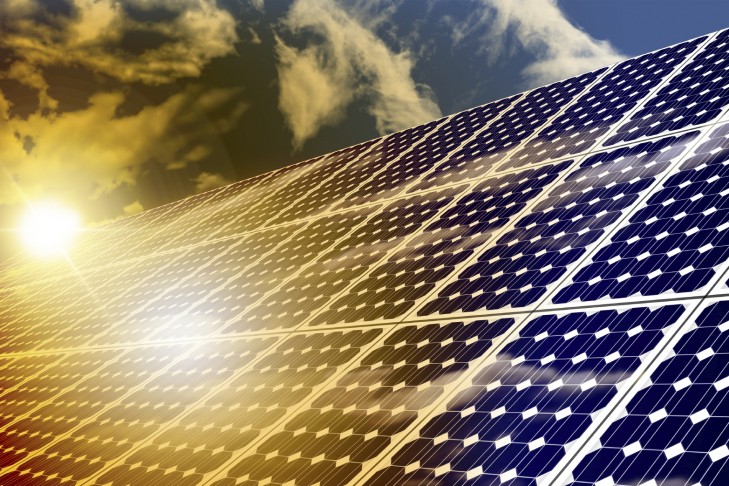For each of us, our presence and purpose at Eitz Chayim may touch on different parts of our lives and what we value. For me, it began with two kids who decided they wanted bar and bat mitzvahs and our search for a place that felt like home. Eitz Chayim became that place, and after we started spending time there, I—like many other people—noticed that the old houses that make up our physical space were in need of serious love, including wasting enormous amounts of energy. Not only were the two old houses leaky and uninsulated, but a beautiful south-facing roof, perfect for solar, was empty of panels.
Having produced a film about how unhealthy and dangerous the old ways of making energy are—focusing on coal in West Virginia—I learned that the costs of dirty energy are not just long-term climate destabilization, but the immediate diseases they cause: asthma, pulmonary, cancer, etc. Working in particular with David Salomon, and with help from David Cane and Bill Donaldson, we set about to make Eitz Chayim a showcase for how a small organization can do its part to reduce the harm caused by our need for energy, showing our moral leadership with on-the-ground change.
With the help of the Home Energy Efficiency Team, we organized an energy efficiency “barn raising” in 2009 and sealed many of the leaky parts of the building. Then, in a stroke of luck, HEET steered a $75,000 EPA grant to us, allowing us to install all new energy-efficient windows throughout.

Next up, realizing that the two houses had stood collectively for about 200 years through New England winters with no insulation, HEET helped us raise funds to match MassSave grants, and, finally, in 2014, we insulated. The fundraiser had an extra level of impact as it came in the form of $50 donations for every person in our community who got a home energy audit.
Then, during the expansion and renovation project we replaced heating for the sanctuary with air source heat pumps, which are cleaner and more efficient since they run on electricity rather than natural gas (and as the grid gets cleaner, they get cleaner).
At last the sanctuary was complete and it was finally time to tackle the solar project! I’m happy to report that the one remaining roadblock, our need to replace an old roof, was solved with the incredibly generous donation of 50 percent of the cost by a friend and fellow climate activist Lynn Nadeau of Marblehead, who literally helped shut down a giant coal plant in Salem!

On Sunday, Jan. 28, with the solar company and many others present, we celebrated Tu B’Shevat and our new solar project. We have now nearly completed our energy projects; all that remains is replacing the last of our old mercury-filled fluorescent lighting with LEDs (at a cost of about $7K) and replacing some old leaky jalousie windows at a cost of about $1,500.
In an unexpected outcome, organizing the work at Eitz Chayim has given me a great perspective and knowledge of how non-profits like houses of worship, affordable housing and schools can improve their impact on the world with energy efficiency and solar. I have continued working in this area, providing opportunities for people to make “impact investments” in projects like this and creating a new fund bringing efficiency and solar to non-profits. Our hope is to help them respond to the urgent moral responsibility we all have to reduce the climate and health threats posed by our reliance on fossil fuels and show leadership while demonstrating that the solutions are before us.
Eric Grunebaum is a recovering film producer and director whose last feature documentary—about coal and wind in West Virginia—convinced him that there are better ways to produce energy. Since premiering the film at Sundance, Eric has focused on developing clean energy and efficiency projects while generating investment in these projects for positive financial, environmental and social impacts.
This post has been contributed by a third party. The opinions, facts and any media content are presented solely by the author, and JewishBoston assumes no responsibility for them. Want to add your voice to the conversation? Publish your own post here. MORE


